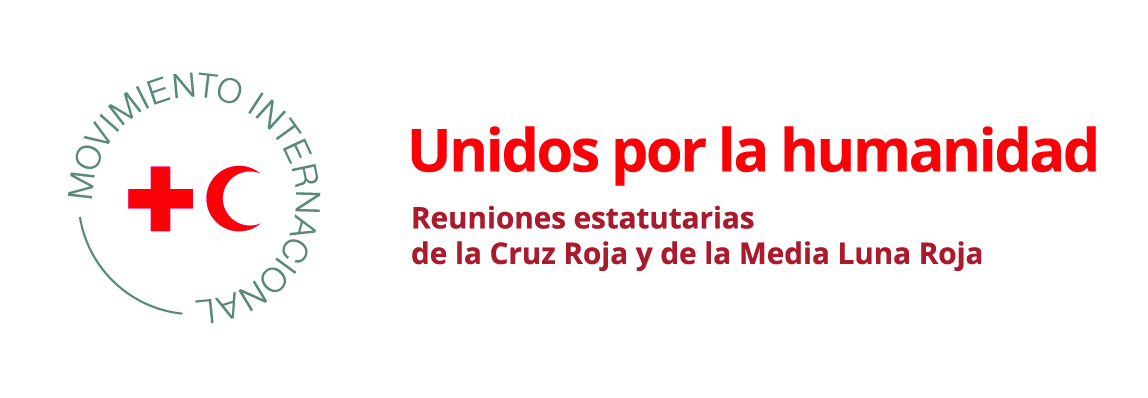Acciones tomadas:
With the support of the German Federal Foreign Office (GFFO) the German Red Cross (GRC) developed new and adapted approaches to strengthen humanitarian assistance in the urban context. Experiences have been shared through reports and presentations within the International Red Cross and Red Crescent Movement and the wider humanitarian community. Contributions have been delivered at international conferences and platforms raising awareness for the specific requirements of humanitarian assistance in the urban context. Learnings from implementation and pilot projects have been captured and shared to increase knowledge exchange on urban humanitarian action.
Key actions include:
The development of a policy paper on the adaptation of the “Preparedness for Effective Response”/ PER methodology to urban areas. The methodology was tested in different contexts and adapted with the aim of improving the disaster response capacity of the International Red Cross and Red Crescent Movement in urban areas. The published paper “Operationalizing methodologies and tools for humanitarian assistance in the urban context” summarises the experiences of testing and adapting context and capacity analysis tools in Maputo and Matola (Mozambique). A second report with the same title “Operationalizing methodologies and tools for humanitarian assistance in the urban context” shares learnings that have been put into practice in Dhaka, Bangladesh, to understand how and why these have been successful, and best practices that could potentially be carried over into other cities.
An urban supplement to the “Forecast based Financing (FbF) methodology” was developed to improve its applicability in urban contexts. The experiences and lessons learnt of that supplement were published in the “Guidance Note on FbF in Urban Areas”. This guidance note provides a resource for practitioners intending to set up anticipatory mechanisms such as Forecast-based Financing (FbF) in urban contexts. Suggestions in the guidance note integrate knowledge and perspectives from a variety of sources, including expert views from regional and global FbF dialogue platforms, literature reviews and lessons from pilot projects. This was also the focus of the “Anticipatory Humanitarian Assistance in the Urban Context” conference, organized by the GRC in collaboration with the German Federal Foreign Office and civil society partners on December 7th, 2020.
An Urban Action Kit methodology has been developed together with partners in the Movement to support sister National Societies’ project development in urban areas. This Urban Action Kit is intended to help civil society, especially Red Cross Red Crescent branches and their volunteers, to strengthen resilience in their communities with simple, low-cost, do-it-yourself activities. Volunteers can champion these activities through existing resources, networks and community organizing. In its seven modules the kit provides ideas for nature-based solutions, creative communications, urban agriculture, early warning early action, and more.
Dissemination of new approaches:
The GRC has shared these methods and approaches with humanitarian actors on several occasions, most prominently the “Red Cross Red Crescent Urban Collaboration Conference” in 2020 and 2021 hosted by the German Red Cross. A record number of 1,138 participants from 132 countries attended to discuss the challenges cities affected by crises and disasters face, and how an urban systems approach of multi-stakeholder, multi-sector and multi-hazard coordination and response is necessary for a coordinated, more effective and efficient of response.
The latest developments of the urban team were also presented via the yearly participation in the Global and Regional Dialogue Platforms from 2020 to 2023.
Approaches and tools adapted are in addition shared via training modules most notably the online training “Humanitarian Assistance: Adapting to Urban Challenges”, which was developed by GRC with the support of the GFFO and released on the IFRC learning platform in 2023 to further train humanitarians on urban programming and response.
Contribution to knowledge management:
To address the need for comprehensive information in urban contexts, the urban team set up global and regional urban projects on the “Data Entry and Exploration Platform” (DEEP), creating a unique database of over 250 documents and 10,000 entries that can be used to download customized situation reports or needs assessments, overall providing a secondary data knowledge base for urban contexts. Using Natural Language Processing and Artificial Intelligence, the platform facilitates assisted data analysis and team-based collaboration across the Movement, and beyond.
The teams’ efforts in the three priority topics “improved access to information, methods and approaches on urban humanitarian assistance”, “the development of improved capacities and context analyses”, and “the development of adapted trainings”, have been completed. However, to build safe and inclusive urban communities and “shaping tomorrow” the project would benefit from intensified efforts regarding the further dissemination and wider use of the adapted approaches for context analysis and project management for humanitarian assistance in the urban context. To make the results known to a wider humanitarian audience within and beyond the RCRC Movement and to further increase the resilience of urban populations and systems, continued efforts in advocacy and policy would be needed. To further advocate for contextualized urban approaches, the project team together with the IFRC is currently supporting the process of drafting “Principles of Action” (PoA) for the implementation of the resolution “Strengthening the resilience of urban communities: our way forward”, which was adopted as part of the 2022 Council of Delegates. The resolution calls on the RCRC National Societies to scale up and mainstream urban resilience approaches in their regular programming.



